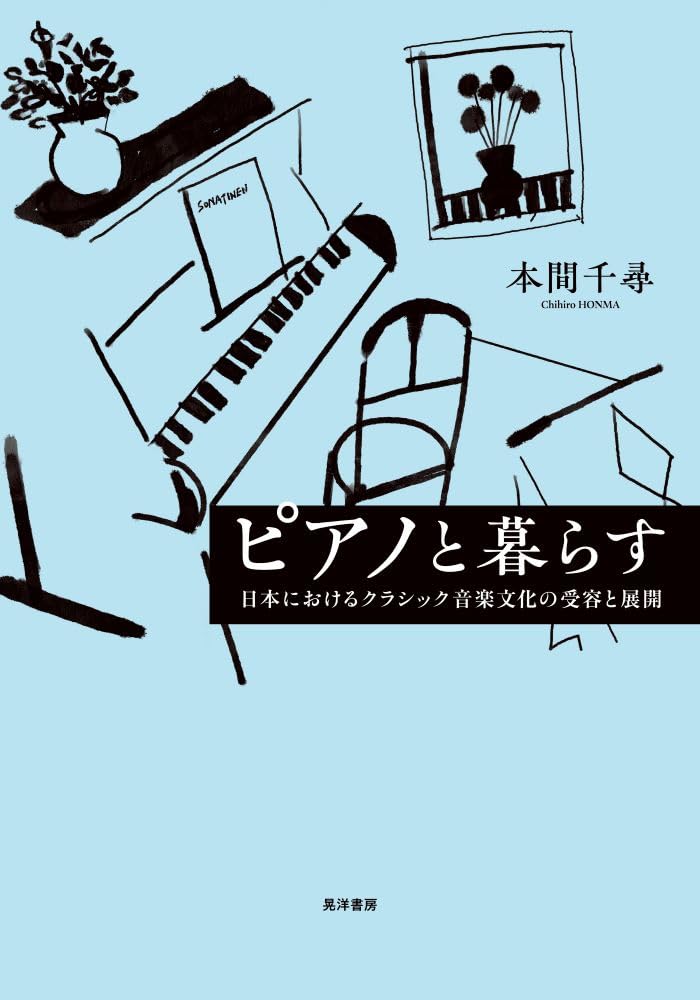From a "coveted instrument" to a piano in the home as a common sight
Perhaps no other instrument has had as much of an impact on the Japanese lifestyle as the piano.
An upright piano in the living room.
Placing a coveted instrument in the living room, you occasionally practice Badajzewska's "Prayer of the Maidens."
You hang Renoir's "Two Girls Playing the Piano" next to the piano, and try to fulfill your own dreams and aspirations by having your daughter or son learn piano.
From the children's perspective, there are likely many who were "forced" to learn piano at their parents' behest.
And yet, for many, the piano they were forced to learn has somehow become an inseparable "hobby" or "part of their life."
From the era when learning piano was considered "lesson," through the classical music boom and the Bunin Syndrome, to the era in which "high-class amateurs" with advanced performance skills were born.
Japanese piano culture has truly become a part of everyday life, with the piano as a part of everyday life.
Striking a fine line between culture, hobby, and education, what impact have Yamaha Music Schools and the PTNA Piano Competition had on the spread of classical music and piano culture in Japan?
This book provides a multifaceted portrayal of the process by which Japan's piano culture has been created, from the Meiji period to the present.
Internal interviews with people who played the piano before and after the war, as well as those currently involved in the piano, explore how parents' views of their children, women's lifestyles, and playing the piano within the family have changed, providing a true picture of Japanese piano culture that cannot be captured through academic documents alone.
Table of Contents
Preface
Introduction: Rethinking Japanese Piano Culture Today
1. Background
2. Introduction and Review of Previous Research
3. Purpose of This Book
4. Research Methodology and Structure
Part I: Understanding Piano Culture
Chapter 1: Piano Culture as Cultural Capital
1. Hobbies and Cultural Capital in Bourdieu's Theory
2. The Meaning of Music in Bourdieu's Theory
3. Development of Bourdieu's Theory
4. Cultural Capital in Contemporary Society
Chapter 2: Piano Culture as Hybrid Modernity
1. Postmodern and Modern Transformations
2. Hybrid Modernity
3. Hybrid Modernity and Cultural Omnivore
Part II: Dreams Become Reality
Chapter 3: Modern Music Culture and the Introduction of Classical Music in Japan
1. Music Culture in Modern Western Europe
2. Hybrid Modern and Piano Culture
3. The Introduction of Western Music to Japan and the Establishment of Music Education
4. The Emergence of Piano Culture in Japan
Chapter 4: Prewar Piano Culture and Classical Music Players
1. Changes in Living Structure Prewar
2. The Formation of Class Culture
3. The New Urban Middle Class and Piano Culture
4. Classical Music Love and the Reception of Beethoven
Chapter 5: Postwar Urbanization and Music Culture in Japan
1. Japan's Urbanization from the Perspective of Demographics and Household Economy
2. Changing Perceptions of Children
3. Piano Culture as a Mother's Dream
4. Music in the Home
Chapter 6: The Spread of Piano Culture in Japan
1. The Birth and Expansion of Yamaha Music Schools
2. Yamaha Music Schools and Japanese Piano Culture
3. The Birth of Hybrid Modern Piano Culture
Chapter 7: 1980 The Birth of the "High-Class Amateur" Since the 1990s
1. The Arrival of the Classical Music Boom and Piano Culture
2. Changes in Music Colleges and the Birth of the "High-Class Amateur"
3. Luxury Hobbies and the Entrance Exam Competition
4. The High-Class Amateur as a Status Symbol
5. The PTNA Piano Competition and Hybrid Modern Music
Chapter 8: Diversification of Music Culture
1. Another Piano Culture
2. Piano Culture and Cultural Capital
3. Piano Culture and Hybrid Modern Music
Conclusion: Japanese Piano Culture: Its Birth and Creation
1. Piano Culture from a Historical and Sociological Perspective
2. Piano Culture from a Gender Perspective: Women's Constraint and Liberation
3. Piano Culture as a Class Culture: From the Perspective of "Cultural Capital"
4. Genichi Kawakami and Yasuko Fukuda in Piano Culture: From the Perspective of "Hybrid Modern Music"
Afterword



















![Snadná repertoárová partitura pro dospělé, kteří mají rádi klasické klavírní sólo se jmény v klavíru [snadná kana]](https://img.joomcdn.net/1116a5cd5628e9d26146b2a55daf8c2ddb357d7a_73_100.jpeg)
![Klavír Výběr klasických mistrovských děl doprovod [revidované vydání]](https://img.joomcdn.net/d1b1027458757743d97c2b06e01c5a84c9b018ba_73_100.jpeg)







![Yoshiko Piano Tělo pro hru na klavír Kurokawa's Supplement [v ceně DVD]](https://img.joomcdn.net/fab8cacc8b1a31f876434ae561b44999ace3a245_81_100.jpeg)
